Comme les Go-Betweens, les Triffids ont quitté leur pays natal et tentent de trouver leur bonheur au Royaume-Uni. Et ils ne tardent pas à le trouver avec Calenture, leur avant dernier album publié en 1987. Produit par Gil Norton, le romantisme des Triffids fonctionne à plein régime et propulse les McComb sur le devant de la scène. Et si… Et si les Triffids allaient enfin jouer dans la cour des grands (vendeurs) ? Island y croyait mordicus ! Deux ans plus tard, les Triffids arrivent avec un disque qui se voulait double mais qui a été réduit à sa portion congrue par le label. Les McComb y ont mis toute leur folie et tentent de doubler la mise de Calenture. Le disque perdra la bataille commerciale mais fait gagner aux Triffids une place dans notre panthéon.
Pour résumer trivialement l’affaire, si le rock australien était une religion (et il l’est pour certains…), The Apartments seraient les protestants (pour leur austérité apparente), les Go-Betweens les catholiques (pour leur foi invincible) et les Triffids les évangélistes. Et vous saurez pourquoi en écoutant leur chant du cygne.
Sally Collins
Sally Collins était la manageuse des Triffids.
Comment as-tu rencontré The Triffids ?
Sally Collins : J’ai rencontré The Triffids quand ils sont arrivés à Sydney. C’est un groupe originaire de Perth. Je travaillais dans une société de gestion appelée S.C.A.M. qui s’occupait des groupes de rock. Un de mes amis faisait partie d’un groupe appelé Flowers / Icehouse. Ils ont fait une tournée dans la région de Perth et il est venu me voir et m’a parlé des Triffids. Je pense que c’était au début de 1982. Alors, quand ils sont venus à Sydney, je suis allé à leur premier concert et j’ai adoré. Je leur ai donné beaucoup de concerts pour soutenir mon groupe Sunnyboys. Ils vivaient dans un entrepôt derrière mon bureau et Rob McComb venait me vendre leurs cassettes pour que je les distribue aux labels.
Et comment devient-on manageuse des Triffids ?
A la fin de 1983, j’ai quitté la société de gestion. Rob et Dave m’ont alors demandé de gérer les Triffids. J’étais un peu épuisée, j’ai refusé mais je suis quand même devenue leur agent et j’ai monté leur tournée en Australie. Ils avaient une nouvelle maison de disques, Hot Records. Je les ai accompagnés chez le label, qui m’a demandé de gérer une agence de réservation via leurs bureaux. Les Triffids sont partis au Royaume-Uni en 1984. Quand ils sont revenus en Australie, ils m’ont demandé de venir à Londres avec eux l’année suivante pour coordonner leur tournée et négocier avec Hot Records un accord international. À ce stade, nous avons conclu une série de contrats de licence en Europe avec Rough Trade. Les relations avec Hot Records n’étaient plus au beau fixe. Ils m’ont de nouveau demandé de les gérer exclusivement et j’ai accepté.
Et comment sont-ils arrivés chez Island Records ?
J’avais vu une interview de Chris Blackwell de Island Records dans l’émission The Tube. J’ai adoré le label, sa taille et son esprit. Je pensais que cela correspondait vraiment à la nature indépendante des Triffids. Après la publication de Born Sandy Devotional, les Triffids avaient reçu des offres de plusieurs labels. Cependant, je les voulais vraiment sur Island et j’ai persisté. L’affaire s’est faite.
Pourquoi ont-ils choisi Stephen Street comme producteur ?
Island a suggéré des noms pour le producteur, Stephen en faisait partie. David était intéressé par Stephen car il admirait son travail. David voulait un son totalement différent de celui des deux albums précédents. David et Stephen ont très bien travaillé ensemble. Ils ont choisi un studio résidentiel dans le Somerset. David avait tellement de chansons et la nature de celles-ci variait tant au niveau du style que de l’atmosphère. Phil Kakulas, un des premiers Triffids était de retour dans le groupe et il a co-écrit plusieurs chansons. Il est venu d’Australie avec sa petite amie, la chanteuse lyrique sud-américaine Rita Menendez. Pour moi, la contribution de Phil a vraiment aidé à donner le ton du disque et j’ai adoré la voix de Rita. Ce retour de Phil a été fantastique.
L’enregistrement de Black Swan fut-il facile ? Cela leur a pris combien de temps ?
Les membres des Triffids répondraient mieux que moi. Je pense que les relations entre Stephen Street ont été très calmes et prolixes. Le studio et ses alentours étaient charmants. J’étais heureuse que le groupe dispose d’un budget et d’une opportunité de travailler loin des distractions de Londres.
Quels sont tes meilleurs souvenirs de 1989 ?
1989 est devenue au final notre dernière année. The Black Swan a reçu un accueil mitigé. Certaines chroniques étaient incroyables, mais d’autres ont estimé que la variété des chansons était un défaut. Personne ne doutait de la qualité de l’écriture. Toutes les chansons n’ont pas été diffusées en radio, mais Fairytale Love, Falling Over You, Goodbye Little Boy et Spinning Top Song sont devenus très populaires. Après 10 ans sur la route (dont cinq ans avec les Triffids), j’avais décidé de déménager. J’avais passé beaucoup de temps à essayer de faire travailler le groupe en Amérique. Cependant, je n’étais pas satisfait d’Island aux États-Unis, j’ai estimé que le groupe avait besoin d’un manager américain pour percer là-bas. Alors j’ai démissionné.
The Triffids – Fairytale Love
Je garde de nombreux souvenirs de cette année. La session photo de l’album, à Perth, en janvier, la sortie de l’album et la tournée ont été amusantes pour moi. La réalisation du clip de Goodbye Little Boy aussi… J’ai organisé l’enregistrement du disque Stockholm – Live pour clôturer un contrat avec un label suédois, antérieur à Island, a également été un fait majeur de cette année. Cet enregistrement a été publié en 1990. Mais 1989 a été une année de changement pour nous tous. David avait des chansons qu’il voulait enregistrer avec Adam Peters et qu’il voulait jouer seul pendant un moment. Ce ne fut une surprise pour personne. En conséquence, le groupe a décidé de faire une pause à la fin de sa tournée en Australie. Au final, la tournée Black Swan en Europe et en Australie a été pour nous tous la dernière tournée des Triffids. La fin d’une ère. Nous avons passé un bon moment.
Quelle est ta chanson préférée de ce disque ?
Evidemment, j’ai adoré Too Hot to Move, c’était une vieille chanson qu’ils utilisaient dans une émission télévisée australienne en 1984. C’était toujours dans leur ensemble. Cela me donnait le mal du pays pour l’Australie et me rappelait les longs et chauds étés. Cependant, les chansons que je réécoute sont les titres co-écrits par David et Phil, Susan Black Eyed, Little Clown Prince et Bottle of Love. J’adore aussi Good Fortune Rose. Jill et Alsy ont écrit cette chanson. Elle est représentative des chansons précédentes de Triffids écrites par Alsy. Réfléchie, douce et mélodique, comme Do You Want Me Near You que l’on trouve dans In The Pines.
Richard Haughton
Richard Haughton a fait les photographies pour la pochette de Black Swan. Il a travaillé pour les Triffids. Mais aussi pour Paul McCartney et surtout Talk Talk. Et bien d’autres…
Comment as-tu rencontré les Triffids ?
Island Records m’avait chargé de faire le tournage, en décembre 1988, et me suis rendu à Perth, où j’ai rencontré le groupe pour la première fois.
Où ont-été faites les photographies de la pochette et du livret ?
La pochette a été faite dans les écuries derrière l’incroyable maison de la famille McComb, The Cliffe. Nous avons passé environ une semaine à filmer, planifier et trouver des emplacements, à Perth et plus au large de la côte. Nous avons aussi beaucoup tourné dans le paysage.
Quel appareil as-tu utilisé ? Et quels films ?
Un Canon et peut être un Bronica 645. Le film est peut-être un Kodak EES 888 35 mm et un Kodak EPD 200 pour le Bronica. Il s’agit de films inversibles que j’ai développées moi-même via un traitement croisé et que j’ai tirés. Pour un des clips, j’ai utilisé une caméra Super 8.
Quels souvenirs gardes-tu de ce moment ?
C’était très intéressant – le groupe était génial, il faisait chaud et il y avait du soleil. Au même moment, tout le monde se les gelait à Londres. Nous sommes allés dans de très beaux endroits et nous avons eu beaucoup d’images très fortes. Une expérience culturelle très singulière. Ensuite, nous sommes restés à Noël et au Nouvel An et avons parcouru la côte en nageant, en mangeant et en parcourant l’incroyable paysage australien. Je me souviens très bien que David ait dit qu’il n’aimait pas les fruits parce qu’il était trop humide.
Ce fut facile de travailler avec les Triffids ?
Oui, vraiment facile.
The Triffids – Goodbye Little Boy
Evil Graham Lee
Evi Graham Lee était le guitariste du groupe.
Comment s’est passé l’enregistrement de votre ultime disque ? Cela a été facile ? Combien de temps cela vous a pris ?
Evil Graham Lee : C’était à la fois facile et difficile. C’était la première fois depuis longtemps que nous impliquions beaucoup de personnes extérieures dans le processus d’enregistrement et il a fallu un certain temps pour s’y habituer. Nous connaissions déjà Phil Kakulas, bien sûr, mais la participation d’un autre auteur-compositeur signifiait un style de chansons et une manière de travailler différente. L’autre grande différence était que Dave avait élargi ses horizons. En fait, Black Swan devait être d’un double album tentaculaire, mais c’est devenu un album simple principalement en raison de la réticence de la maison de disques. Mais ce n’est que mon avis. Personnellement, j’ai eu une période d’adaptation à ce qui était pour moi des styles de musique que je n’avais jamais joués auparavant. Il nous a fallu six semaines environ. Assez longtemps pour prendre du poids grâce aux excellents repas que nous fournissait le studio.
Où l’avez-vous enregistré ?
Dans un studio du Somerset. Nous avons vécu là-bas. Nous y dormions et tous les jours nous y déjeunions avant de nous mettre au travail.
Pourquoi avoir choisi Stephen Street comme producteur ? Quels souvenirs gardes-tu de cet enregistrement ?
Stephen commençait tout juste à être connu pour son travail avec les Smiths. Il était jeune et ouvert aux nouvelles idées et à des styles différents. Cet album avait besoin de quelqu’un d’ouverture d’esprit. Il est important de noter que Dave et lui avaient un respect mutuel l’un pour l’autre. Pour moi, c’était la première fois que je retrouvais vraiment plongé dans autant de styles de musique différents et c’était assez stimulant. J’apprécie cette expérience de plus en plus, grâce au recul. Comme nous vivions là-bas, nous pouvions enregistrer à tout moment de la journée et Dave utilisait sa propre méthode pour faire ses voix. Pour Falling Over You, il se levait tôt avec une gueule de bois tonale pour obtenir la bonne qualité dans sa voix.
The Triffids - The Triffids present Black Swan
The Triffids Present The Black Swan de The Triffids est disponible chez Island Records et a été récemment réédité par Domino Records.
- Too Hot To Move
- Too Hot To Think
- American Sailors
- Falling Over You
- Goodbye Little Boy
- Bottle Of Love
- The Spinning Top Song
- Butterflies Into Worms
- The Clown Prince
- Good Fortune Rose
- New Year's Greetings (The Country Widower)
- One Mechanic Town
- Blackeyed Susan
- Fairytale Love
English text
Sally Collins
How did you meet The Triffids ?
I met The Triffids when they first came to Sydney, from Perth. I was a partner in a management company called S.C.A.M. looking after other bands. A friend of mine was in a band called Flowers/Icehouse. They toured to Perth and he cam bck and told me about this band, he’d seen. I think it was early 1982. So when they came to Sydney I went to their first gig and loved it. I gave them lots of gigs supporting my band Sunnyboys. They lived in a warehouse behind my office and Rob McComb would come and sell me their cassette tapes, which I would give away to industry people.
How do we get the Triffids manager ?
At the end of 1983 I left the management company. Rob and Dave asked me to manage The Triffids. I was a bit burned out, I said no, but that I would be their agent and book their Australian tours. They had a new record company, Hot Records. I went with them to the label, who asked me to run a booking agency through their offices. Hot Booking.
The Triffids went to UK in 1984, when they returned to Australia to tour, they asked me to return to London with them the next year and co-ordinate their touring and negotiate with Hot for an international deal. At that stage we had a series of licensing deals in Europe with Rough Trade.
The relationship with Hot Records was breaking down. They asked me again to manage them exclusively and I agreed.
Why did The Triffids do a deal with Island Records ?
I had seen an episode of The Tube with an interview with Chris Blackwell of Island Records. I loved the label, the size of it and their ethos. I thought it really fitted with the independent nature of The Triffids.
The Triffids had contract offers from a few labels, after the release of Born Sandy Devotional. However I really wanted them on Island and persisted. The deal eventuated.
Why did they choose Stephen Street as producer for this record ?
Island suggested names for the producer, Stephen was among them. David was interested in Stephen as he admired his work. David wanted a totally different sound than the previous two albums. David and Stephen worked really well together. They chose a residential studio in Somerset. David had so many songs and the nature of the songs varied in style and atmosphere. It was great that he enlisted his old friend and an original Triffid – Phil Kakulas, who co-wrote several of the songs and travelled from Australia with his girlfriend, South American opera singer Rita Menendez. In my mind, Phil’s contribution really helped set the tone of the record and I loved Rita’s vocals.
How easy was this recording process ? How did long it take them ?
That is a better question for the band members, themselves. As far as I was concerned, it seemed like a fluid and intuitive relationship between the band and Stephen Street. The studio and it’s surrounds was lovely. I was happy that the band had a budget and opportunity to work away from the distractions of London.
What are your best memories of this year (1989) ?
1989 became our final year. The Black Swan was released to mixed reviews, some were amazing, but some felt that the variety of the songs, was too much. No one was in doubt about the quality of the writing. Not all the songs were played ‘live’ but Fairytale Love, Falling Over You, Goodbye Little Boy and the Spinning Top Song, became hugely popular inclusions in their performances.
After 10 years on the road (five years with The Triffids) I had decided to move home. I had spent a lot of time trying to get the band working in America. However I was not happy with Island in the States, felt that the band needed an American manager to break through there. So I resigned.
I have many memories of that year, the photo session for the album, in Perth, in January, the release of the album and tour was fun, for me. The making of the film clip for Goodbye Little Boy.
The recording of Stockholm, in Sweden for the National Radio station, which I organised in order to fulfil a contract with a Swedish label, predating Island, was also a highlight of that year for me. That recording was released in 1990.
But 1989 was a year of change for us all. David had songs that he wanted to record with Adam Peters and wanted to strike out on his own for a while. This was not a surprise to anyone. So as a result the band mutually decided to take a break, at the end of the tour, in Australia.
In the end, The Black Swan tour of Europe and Australia, was the last Triffids tour, for all of us. The end of an era. We had a great time.
What is your favorite song of this record ? Why ?
Of course I loved ‘Too Hot to Move’, it was an old song of theirs, used in a TV show in Australia in 1984. It was always in their live set. It used to make me homesick for Australia and long, hot summers.
However the songs I returned to repeatedly were the co-writes between David and Phil, Black Eyed Susan, Little Clown Prince and Bottle of Love.
I also adore Good Fortune Rose. Jill and Alsy wrote the song and it is indicative of earlier Triffids songs written by Alsy. Thoughtful, gentle and melodic, like an early favourite of mine Do You Want Me Near You, from In the Pines.
Richard Haughton
How did you meet The Triffids ?
I was commissioned by Island Records to do the shoot, in December 1988, and travelled to Perth where I first met the band.
Where did you shoot these pictures (of the cover album/of the booket) ?
The cover was shot in the stables behind the McComb family’s amazing house, The Cliffe. We spent a week or so shooting, planning and finding locations, in Perth and further up the coast. We shot quite a lot in the landscape too.
Which material did you use (film/camera) ?
A Canon, not sure which, and a Bronica 6×4.5. Film was mainly Kodak EES(?) 800asa 35mm transparency film and Kodak EPD 200asa 120 transparency film, both cross processed and printed by myself.
I also shot some Super 8 film which we used in a video.
What are your best memories about this deal ?
It was very interesting – the band were great, it was hot and sunny instead of freezing London, we went to some beautiful places, and got lots of really strong images. A very specific cultural experience.
And afterwards we stayed over for Christmas and New Year and travelled up and down the coast, swimming, eating, and driving through the amazing Australian landscape.
I remember clearly David saying he didn’t like fruit because “it’s too wet”…
It was an easy photo session ?
Yes, very.
Evil Graham Lee
How easy was the Black Swan recording process ?
It was both easy and difficult. It was the first time in a long while we’d involved a lot of outside people in the recording process and this took some getting used to. We already knew Phil Kakulas of course but having another songwriter involved meant a different style of song and a different way of working. The other big aspect that was different was that Dave had been expanding his horizons. In fact it was meant to be a sprawling double album but it became a single largely due to record company reluctance I think. Personally speaking I had a period of adjustment to what were for me styles of music I hadn’t played before.
How did long it take you ? Where did you record it ?
Not sure, I think it was six weeks or so. Long enough for us to get fat on the delicious residential studio food.
Justice Room at Cathanger in Somerset UK. Attached all the info about it. We lived there, got up and wandered down to breakfast then got to work, or not as the case may be.
Why did you choose Stephen Street as producer ? What are your best memories of this recording process ?
Stephen was only just becoming known for his work with The Smiths, he was young and open to new ideas and different styles and this record needed someone with an open mind. Importantly he and Dave had a mutual respect.
For me it was the first time I’d really been thrown into so many different styles of music and it was quite challenging. I can appreciate the experience may better in hindsight. YMinus Me was recorded late one night after we got back from the pub and it sounds a bit like it too. I played banjo for the first time on that track. Because we lived there we could record at any time of day and Dave sometimes used a bit of method acting in his vocals eg for Falling Over You he got up early with a thunderous hangover to get the right quality in his voice.

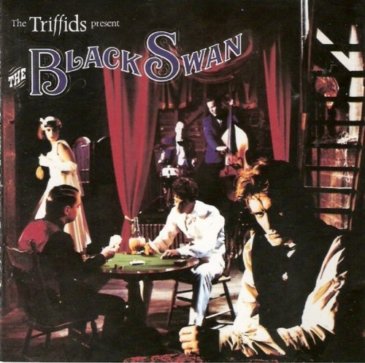
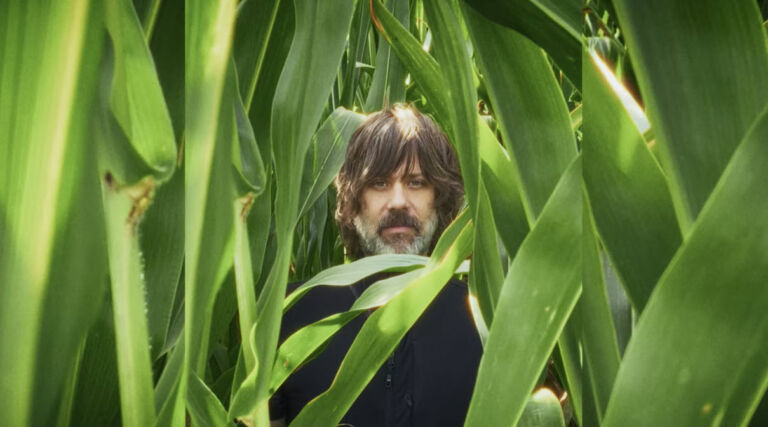
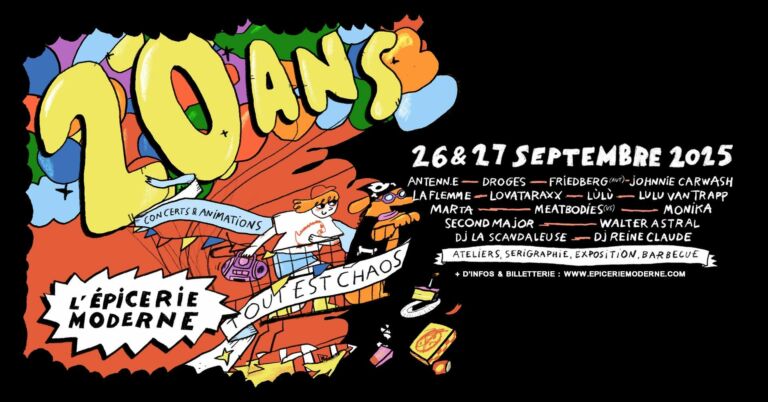
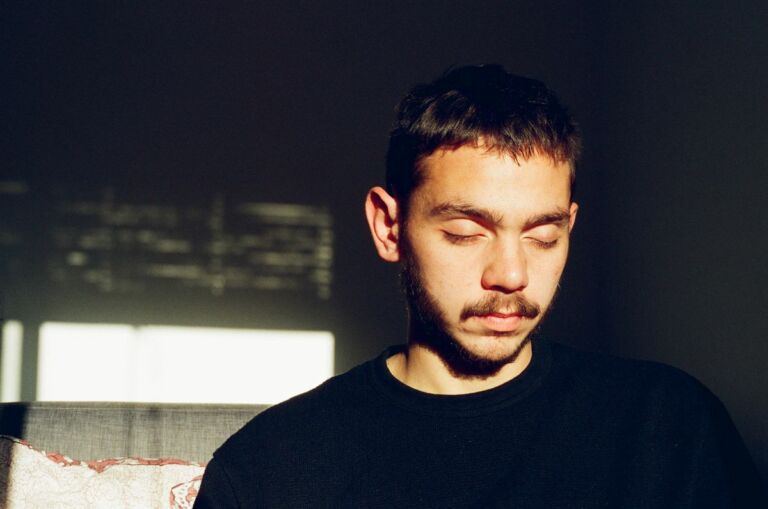
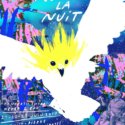 L’envol de Minuit Avant La Nuit
L’envol de Minuit Avant La Nuit [FAIR 2019] Malik Djoudi et sa pop nocturne
[FAIR 2019] Malik Djoudi et sa pop nocturne